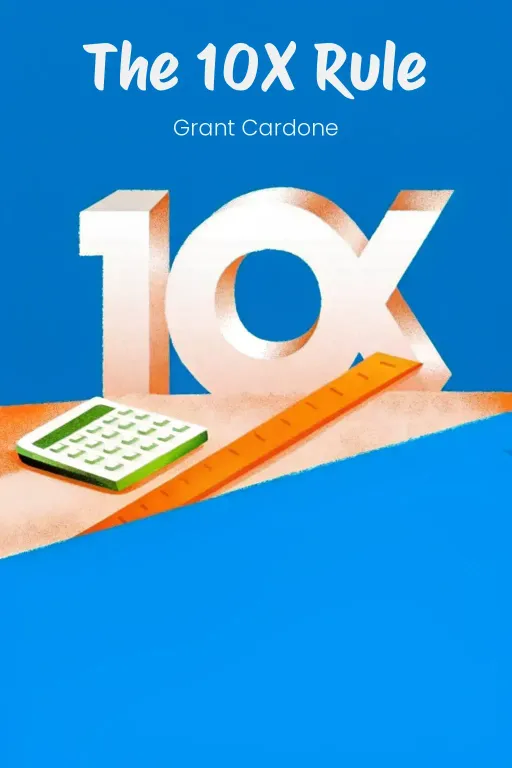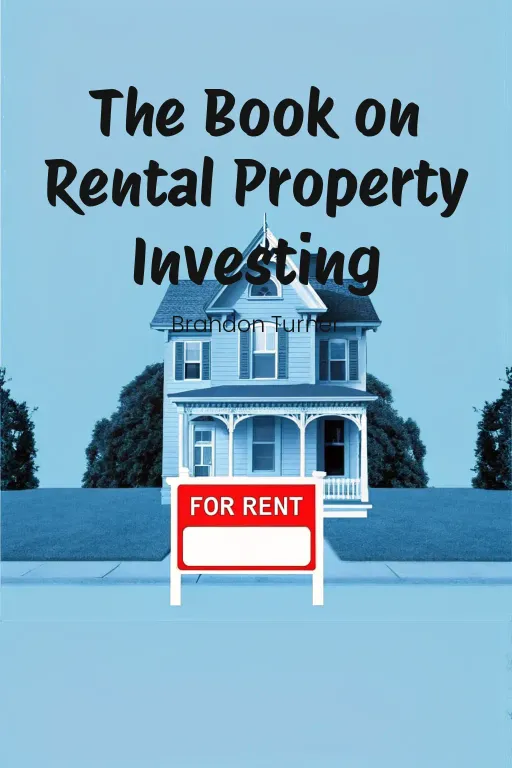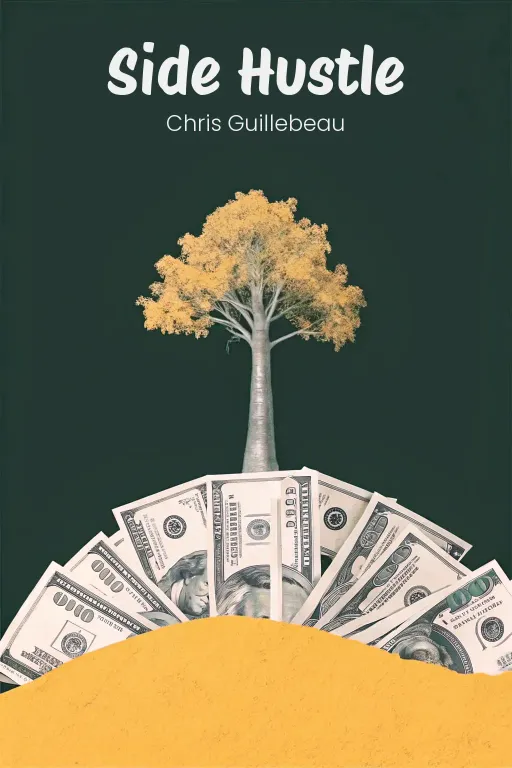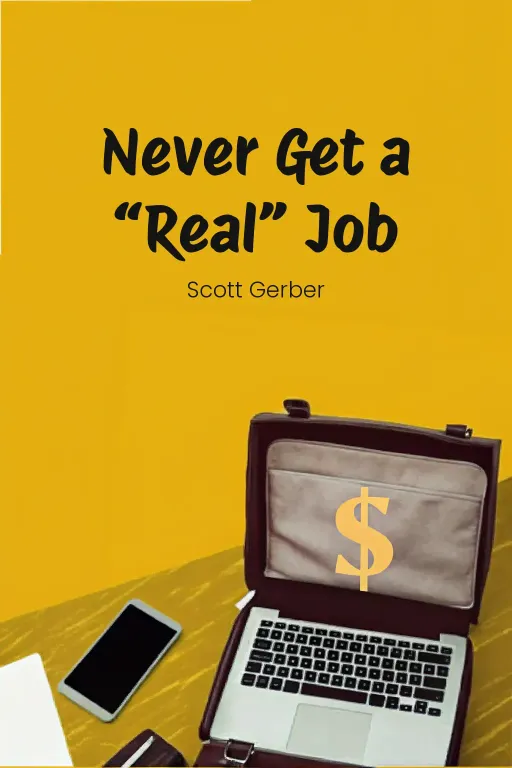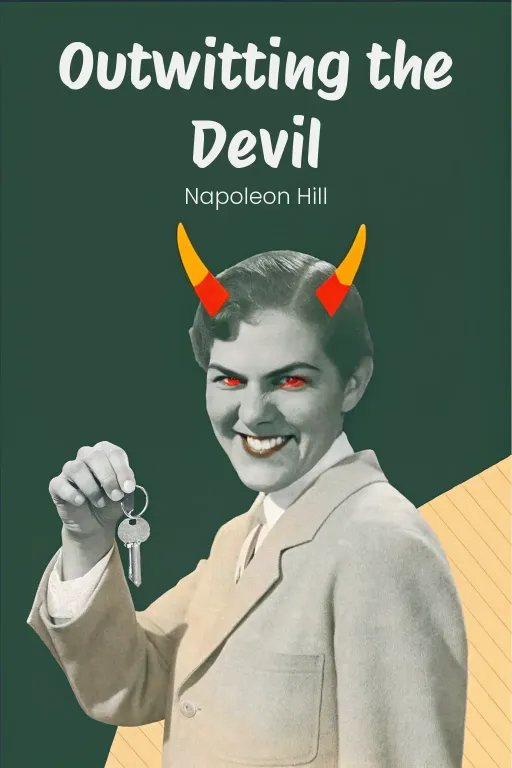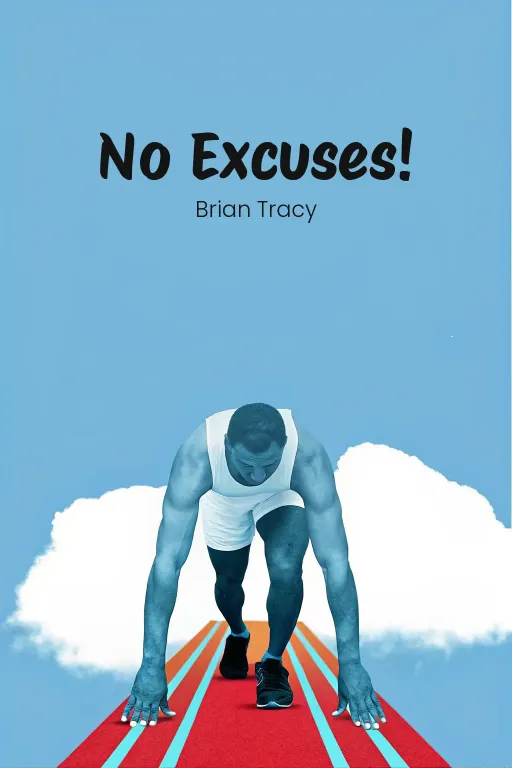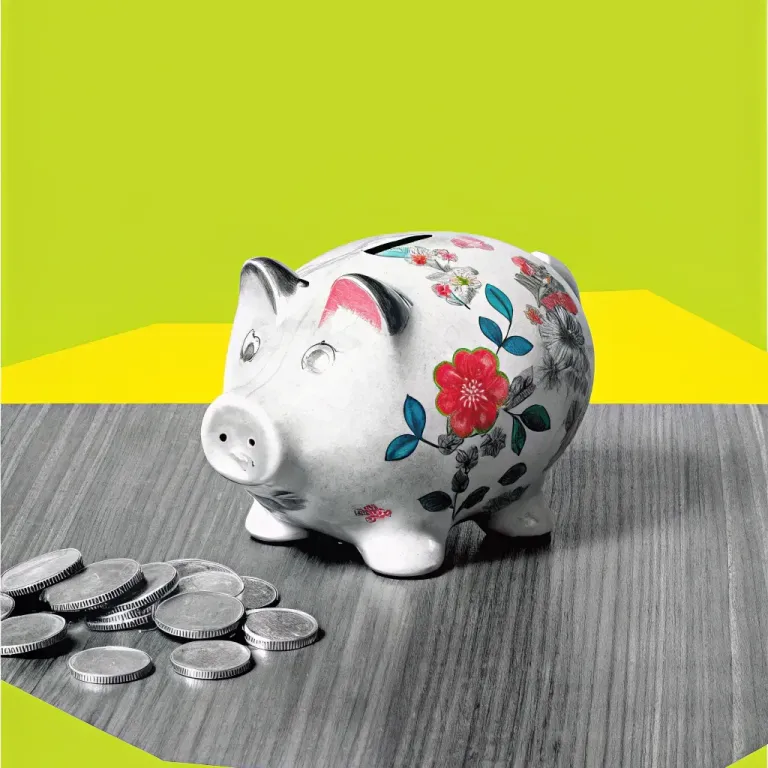
Build Your Dream Life: Finances Unlocked
Podcast by Let's Talk Money with Sophia and Daniel
A Total Beginner’s Guide to Getting Good with Money
Introduction
Part 1
Daniel: Hey everyone, welcome back to the show! Sophia, tell me, when was the last time you felt totally on top of your finances? Or are you, like most of us, just crossing your fingers and hoping things work out each month? Sophia: Ah, you mean like navigating life with a financial blindfold on? Yeah, I know that feeling all too well. But that's exactly what we’re diving into today— how to ditch the guesswork and actually take control. Daniel: Precisely! And we're using Chelsea Fagan's "The Financial Diet" as our guide. It's not just about number-crunching. Chelsea really digs into how money is connected to, well, everything! Your career, your living situation, even what you eat. She gives you the tools to build not just a stable financial life, but a more satisfying one overall. Sophia: Exactly, it’s like a financial handbook mixed with a life coach, all in one book. What I appreciate is that it’s geared toward everyday folks, not just financial wizards or spreadsheet fanatics. Daniel: Totally. And in today’s episode, we’re going to break down what we think are the three core elements of financial freedom. Think of it like building a house. First up, budgeting. That's your blueprint, the essential foundation. Then, we're talking investing. That’s the framework that allows your wealth to grow over time. Sophia: And finally, we have income diversification. Consider it your solid roof, protecting you from those unexpected financial downpours. We’ll explore everything from side gigs to making smart moves in your primary career. Daniel: By the end of this, you’ll see how these three elements work in harmony to create not just a safety net, but a springboard toward the life you actually want. Ready to jump in? Sophia: Let’s get building, brick by brick.
Budgeting and Financial Planning
Part 2
Daniel: So, speaking of those blueprints that set the stage for financial stability, our first focus is budgeting and financial planning. Now, a lot of people hear "budget" and immediately think, "Oh great, I have to give up everything I enjoy." But Chelsea Fagan, in The Financial Diet, totally flips that around. She argues that budgeting isn’t about restriction; it’s actually about empowerment. Sophia: Empowerment, huh? Okay, convince me, Daniel. Because to most people, budgeting sounds about as appealing as, you know, eating plain kale for every single meal. Daniel: I get it, Sophia! That feeling probably comes from misunderstanding what a budget really is. Chelsea talks about how she used to avoid any kind of financial planning. She calls her younger self someone who lived only for the moment, spending impulsively, and just assuming future Chelsea would magically clean up all the messes. At one point, she maxed out her credit card in a single month and had absolutely no idea how to get herself out of that hole. Sophia: Wow, from zero to maxed out in thirty days? That's like an Olympic sprint in financial avoidance. But seriously, I think a lot of people can relate to that, right? There’s this underlying fear of actually looking at the numbers because they don’t want to see how bad it is. Daniel: Exactly. And Chelsea highlights how that fear – even just avoiding it – can actually make things so much worse. She describes the emotional toll of being swamped by debt and feeling totally out of control. But her big turning point came when she started seeing budgeting as something liberating, not oppressive. It wasn’t about depriving herself; it was about giving herself clarity and control over her money. Sophia: So, budgeting is like… a flashlight in those foggy financial nights we mentioned earlier? It helps you actually see the terrain instead of just stumbling around and, you know, stepping on a rake. Daniel: Exactly! A perfect analogy. And once you’ve got that flashlight, you can actually start mapping out your path. Let's dive into how to build that map. Chelsea lays out a step-by-step framework for budgeting, starting with tracking your income and expenses. She recommends using bank statements or receipts to capture every single penny that comes in and goes out. Sophia: Oh, the dreaded "audit yourself" phase. But it makes sense. How can you know where you’re going if you don’t even know where you stand, right? Plus, you might uncover some surprising habits, like those sneaky 12-dollar streaming subscriptions you completely forgot about. Daniel: Right! After tracking, the next big step is automating your savings. Chelsea’s a huge advocate for this, because it’s all about paying yourself first. That’s where tools like high-yield savings accounts or even apps can help you automatically direct part of your income into savings “before” you’re even tempted to spend it. Sophia: And let me guess – a good old-fashioned spreadsheet might also make an appearance? Daniel: Oh, definitely. Chelsea likes recommending either tools like Mint, for a more visual approach, or simple Excel sheets if you prefer customization. The key is to get a clear picture of where your money’s going – what’s fixed, what’s discretionary, and what’s being set aside for the future. Sophia: Speaking of flows, does she offer any specific budgeting templates or methods for people trying to get started? Daniel: She does. The 50/30/20 rule is one of her go-to strategies. It basically breaks down your after-tax income into three categories: 50% for fixed costs, like rent and utilities, 30% for lifestyle expenses – restaurants, hobbies, the fun stuff – and 20% for savings and debt repayment. Sophia: Sounds simple enough. Although, I can already hear people saying, "Yeah, but my rent is practically 90% of my paycheck, so what am I supposed to do with that?" Daniel: And that's a fair point, Sophia. The great thing about the 50/30/20 rule is that it's flexible. If fixed costs take up a bigger chunk, then you adjust the other categories accordingly. It’s not about perfection; it's about finding a system that works realistically for you. Sophia: Okay, but what happens when someone feels like they’re already spread so thin that there's nothing left to budget? Daniel: That’s where tracking comes in again. Seeing your full spending pattern often reveals areas where you can cut back. Even small changes can add up. And let’s not forget the power of prioritizing your goals. Chelsea found that when she started tracking her expenses, she uncovered so many mindless spending habits she wasn’t even aware of. Redirecting those funds allowed her to build an emergency fund and pay down debt over time. Sophia: And that leads to what I think is one of the strongest points Chelsea makes – that budgeting isn’t about chasing perfection or expecting miracles overnight; it’s about building awareness and taking those intentional steps, you know, one at a time. Think of it as a direction, not a destination. Daniel: Exactly. And there are huge long-term benefits. Budgeting isn’t just about making ends meet; it’s about creating opportunities. Whether it’s saving for a trip, buying a house, or starting a business, a budget acts like a launchpad. And let’s not gloss over the emotional benefits either. Knowing that you have a plan in place can really reduce financial stress levels. Sophia: It’s kind of funny how managing your money can make you feel like you’ve got the rest of your life a little more under control, too. It’s all connected. That makes Chelsea’s transition from overwhelmed spender to confident manager “really” resonant. Daniel: It “really” does. Budgeting is empowering, not punitive. It’s one of the most foundational tools for financial independence. Once you’re grounded in this practice, it opens the door to everything else we’re going to discuss, from growing your investments to strengthening your income streams. Sophia: Alright, Daniel, that's the foundation laid. Let’s start stacking some bricks. Where do we go from here?
Investing and Wealth Growth
Part 3
Daniel: So, understanding budgeting naturally leads us to the next exciting step: growing wealth through strategic investments. It’s great to get your financial house in order, but the real key to long-term wealth-building is investing. In this section of The Financial Diet, Chelsea Fagan really breaks down the process, starting with core principles like compound interest, moving into beginner-friendly options such as index funds, and emphasizing the importance of diversification. Sophia: Investing—okay, so now we're building the “scaffolding” of our financial house, right? But Daniel, let's be real. For many, “investing” might as well be code for “gambling, but with spreadsheets.” It can sound intimidating, risky, and like you need a mountain of cash to even start. Is that a fair assessment? Daniel: Absolutely, and that’s one of the first misconceptions Chelsea tackles head-on. Investing isn’t only for the wealthy or financial gurus. It’s accessible, and frankly, necessary, for anyone aiming for long-term growth. Let’s begin with the foundation that makes it all possible—compound interest. Sophia: Ah, yes, the legendary compounding. But doesn't that sound like a magical ingredient from a fantasy novel? What makes it so special? Daniel: Well, it's quite straightforward. Compound interest means not only does your initial investment earn interest, but that interest also earns interest over time. It's like a snowball effect. The longer your money grows, the bigger the snowball gets. That’s why starting early, even with small amounts, can make a huge difference. Sophia: Okay, give me a practical way to see this “snowball effect.” Is there a handy tool we can use? Daniel: For sure! Chelsea introduces the Rule of 72. It's a quick way to estimate how long it’ll take for an investment to double. Just divide 72 by the annual rate of return. So, if your investments grow at 6% annually, your money will double in approximately 12 years—72 divided by 6 equals 12. Sophia: Okay, so you're saying to secure my future fun, I should skip the next trivia night, put that cash to work, and… wait? Daniel: <Laughs> Precisely! Although you don’t have to cut out all the fun. Chelsea illustrates the power of compound interest really well with two hypothetical investors: Alex, who starts saving $200 monthly at age 25 with a 7% annual return, and Jamie, who starts the same amount, but at age 35. By 65, Alex has around $480,000, while Jamie only has about $240,000—half as much. Those extra ten years in the market made an enormous difference. Sophia: Wow, so starting early doesn’t just add up; it multiplies. That’s pretty convincing for prioritizing investing, even with baby steps. But this raises a question: What about risk? Isn't investing also a fast track to potentially losing money? Daniel: Absolutely a fair point. That’s where diversification comes in, which is another cornerstone of Chelsea’s investment recommendations. It’s essentially allocating your investments across different asset classes, industries and geographies to protect yourself from market downturns. Think of it as creating a safety net for your portfolio. Sophia: So, don’t put all your eggs in one basket, right? Or, in a more colorful analogy, don’t bet all your chips on a single hand of blackjack. Daniel: Exactly. Diversification helps balance risk and reward. And when we talk about beginner-friendly tools for that, index funds are fantastic. These are mutual funds or ETFs that reflect the performance of a specific market index, like the S&P 500. By investing in one, you’re buying into hundreds of companies at once, instantly diversifying your assets. Sophia: Okay, that sounds good. But… what's the catch? Low risk sounds amazing, but isn't the finance world built on hidden fees? Where's the “gotcha?” Daniel: Valid skepticism, Sophia. And that’s another reason index funds are ideal. They're passively managed, meaning the management costs, or expense ratios, are lower compared to actively managed funds. Chelsea highlights how a $10,000 investment with a 7% annual return grows to $76,000 in an index fund with a 0.2% expense ratio over 30 years. That same investment in an actively managed fund with a 1% expense ratio only grows to $62,000—a $14,000 difference solely because of those fees. Sophia: So, it's not just about the fund's performance; it's about how much they quietly skim off the top. Got it. So how does someone, especially a total beginner, actually start? Daniel: Chelsea has three actionable steps. First, she emphasizes building an emergency fund before even considering the stock market. It’s a safety net for unexpected costs, so you're not forced to withdraw money from your portfolio prematurely. Sophia: Okay, so the emergency fund protects investments from being raided for, say, a surprise car repair. What’s next? Daniel: Step two is to leverage employer-sponsored retirement plans, such as 401(k)s, particularly when there's a matching contribution. Those matches are essentially free money. After that, it’s about starting small with personal investments. Robo-advisors or apps can help you set up an account, automate contributions, and invest incrementally. Sophia: Automating contributions… so it removes decision-making, and honestly, procrastination, from the equation. That's clever. Daniel: Exactly. Automation ensures consistency and lets beginners benefit from strategies like dollar-cost averaging, where you invest regularly regardless of market conditions. It smooths out the highs and lows, reducing the emotional stress of trying to “time the market.” Sophia: But let’s talk mindset, because what you're describing—start early, stay consistent—requires patience, not impulsiveness. That’s a hard “sell” in today’s instant-gratification culture. Daniel: Agreed. Chelsea addresses this by stressing discipline and taking a long-term view. She uses the 2008 financial crisis as an example. Many people panicked and sold their assets when the market crashed, only to regret it later when it bounced back. Staying the course, even during downturns, often pays off in the end. Sophia: It's all clicking now. The stability of automation, the shield of diversification, and the superpower of compounding. It’s less about magic jackpots and more about strategy and endurance. It feels less like gambling and more like planting trees, knowing you’ll enjoy the shade for years to come. Daniel: That’s a perfect analogy, Sophia. Investing is about time in the market, not timing the market. By demystifying these principles—starting with fundamental tools like index funds, understanding risk, and cultivating patience—it’s clear that growing wealth isn’t just viable for anyone; it’s empowering.
Income Diversification and Career Management
Part 4
Daniel: With a solid financial base and growing investments, the next move is “really” about securing and expanding those income streams. That's where income diversification and smart career management come into play. And our discussion today is structured to give us a clear path forward. First up, we’re diving into side hustles—they're not just about extra cash; they're a fantastic way to build skills and grow as a person. Then, we'll tackle financial independence in relationships and why that's so crucial for empowerment. And finally, we'll talk strategies for balancing ambition with your own well-being to avoid burnout. Ready to get started, Sophia? Sophia: Absolutely, let’s jump right into side hustles. So, Daniel, what makes a side hustle more than just a bit of “extra money”? I mean, what’s the “real” value proposition here? Daniel: That’s a great question. A side hustle is more than just a second paycheck; it's “really” a multi-faceted tool. It offers financial security, minimizes the risks of relying on just one income, and can unexpectedly lead to amazing new opportunities. Chelsea discusses a young woman, for example, who worked at café and started a blog on the side. What started as just a hobby turned into a full-blown freelance writing career, allowing her to pay off her student loans quicker and pivot into a career she truly loved. Sophia: So, she went from serving lattes all day to blogging all night, and then, boom, she’s her own boss as a writer. But what was the secret ingredient? Was it passion, discipline, or just dumb luck? Daniel: Definitely wasn’t luck. The key was intentionality. She didn’t just blog randomly—she shared her personal insights, like her financial challenges and some cool culinary tips, that “really” resonated with people. By being consistent and strategic, she managed to monetize her efforts. Her shift into freelance writing wasn’t accidental; it was from recognizing and seizing the opportunities her side hustle created. Sophia: Okay, but for those of us who don’t have a hidden writing talent or some ready-to-monetize hobby, where do we even begin? Daniel: That’s where Chelsea provides some “really” actionable advice. First, assess your skills and interests. Everyone has something—they just need to pinpoint what it is. Maybe you’re good at woodworking, graphic design, or even just super organized, which could turn into freelance project management. Second, use existing platforms. Whether it’s Etsy for crafts or TaskRabbit for errands, these platforms offer a framework to get started without needing to build everything from scratch. Sophia: So, basically, start with what you’ve got. I like this third point you mentioned—setting clear financial goals. Why is that so crucial for side hustle success? Daniel: Because a side hustle without a purpose can quickly become overwhelming or even counterproductive. If you’re clear on what you want to achieve—paying off debt, saving for a major goal, or just creating a financial buffer—it keeps you laser-focused. Without that, it’s easy to burn out or lose steam, especially if you don’t see immediate results. Sophia: And what about the time commitment? I know people who are barely keeping their heads above water already. How do you address that concern? Daniel: Good point. Chelsea emphasizes starting small. You don’t need an extra 20 hours a week—a few well-spent hours can make a big difference. The young woman who blogged only refined her occasional postings into a reliable strategy after she tested what resonated with her audience. It’s about dipping your toes in the water and scaling up once you see the potential and feel comfortable. Sophia: Right, like planting seeds. You don’t need to plow the whole field right away. Okay, but, Daniel, let's be real, not every side hustle will blow up and replace your main income. How do people make sure they’re not just wasting their time? Daniel: Prioritize process over outcome. Not every side hustle will become some huge freelance venture, but that doesn’t mean it’s worthless. Even if it doesn’t grow exponentially, it can still provide additional income or valuable skills. Plus, side hustles can be a creative outlet, which has value beyond just the financial gains. Sophia: Got it. Side hustles are about flexibility and potential, not guarantees. That gets us to another important topic—handling money and careers within relationships, right? Daniel: Exactly, Sophia. Financial independence within relationships is essential, and I love how Chelsea connects this to broader themes of empowerment. Take women, for instance—having their own income source brings autonomy, confidence, and more options. Olivia Mellan, a financial expert, advocates for "separate finances" as a necessity, so each person maintains their own financial safety net within a partnership. What are your thoughts on this? Sophia: It makes complete sense. It’s not just about preparing for worst-case scenarios like a breakup; it’s about maintaining balance. Think of Miranda in Sex and the City: she manages her career and finances methodically, ensuring her independence regardless of her love life. Compared to Carrie, who’s always borrowing money or relying on others, you see how financial self-awareness “really” translates to emotional stability. Daniel: Exactly. Financial independence fosters equality in relationships. Chelsea points out that it’s not about shunning collaboration; it’s about recognizing that everyone—not just women—should be equipped to stand on their own two feet financially. Sophia: But there’s another layer here, Daniel. Sure, chasing multiple income streams and career success is great. However, what about the idea that "you can’t pour from an empty cup"? How do you balance ambition with your own well-being? Daniel: That’s where Chelsea's holistic approach comes in. She emphasizes that financial growth isn’t the only point of life—it’s about creating stability so you can actually enjoy life’s meaningful moments. Spending time offline, sharing meals, walking in the park—these aren’t financial goals, but they enrich your life in ways money can't. Sophia: Exactly. The big question becomes, "What are you building all of this for?" If the grind consumes everything, what’s the point? It’s like being so focused on building a house that you forget to live in it. Daniel: That’s a perfect analogy. That’s why career management isn’t just about climbing the ladder—it’s also about self-reflection. Doing an annual career checkup, where you evaluate if you’re still growing and if your professional goals align with your personal happiness. And sometimes, as Chelsea notes, that reflection leads to a pivot, whether it’s switching industries or getting a certification to reignite your passion. Sophia: So, ambition has to be as intentional as managing your money or diversifying your income streams. When balanced with well-being, it becomes a tool for building not just wealth, but a meaningful, secure, and enjoyable life.
Conclusion
Part 5
Daniel: Okay, let’s wrap things up. Today we dove into the main pillars of financial empowerment. We started with budgeting, which is "really" the bedrock for understanding and managing your money. Then we talked about investing – the long game for building wealth, where being consistent and spreading your risk is key. And finally, we discussed diversifying your income, looking at side hustles, career moves, and the importance of financial independence within relationships, all of which add up to resilience and more freedom in your life. Sophia: It all comes back to finding the right balance, doesn't it? Budgeting is your anchor, investing is how you build for the future, and diversifying your income gives you options now and later. But let’s be real, it's not about being absolutely perfect; it’s about moving forward and making conscious choices, wouldn’t you agree? Daniel: Precisely. The key thing I want people to take away is that financial empowerment is something everyone can achieve. Just start where you are. Keep an eye on where your money is going, decide what’s "really" important to you, set up automatic savings, or maybe explore a side project. Each little step you take builds momentum towards more freedom and security. Sophia: So, "really" think about the life you want – where you want to live, what you love doing, who you want to share it with. Money is just a way to make that happen, not the end in itself, right? So start building, one step at a time. Daniel: Absolutely, and remember, being financially healthy isn’t just about the numbers; it’s about giving yourself the power to create the life you want. Let today be the day you take that next step, whatever it may be. Sophia: I totally agree, Daniel. Until next time, keep building, keep growing, and most importantly, keep living your life.

